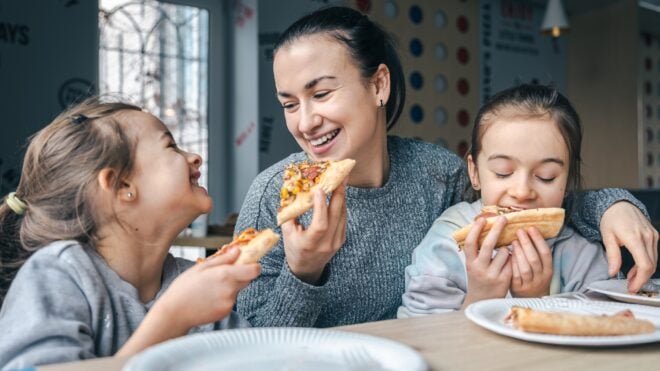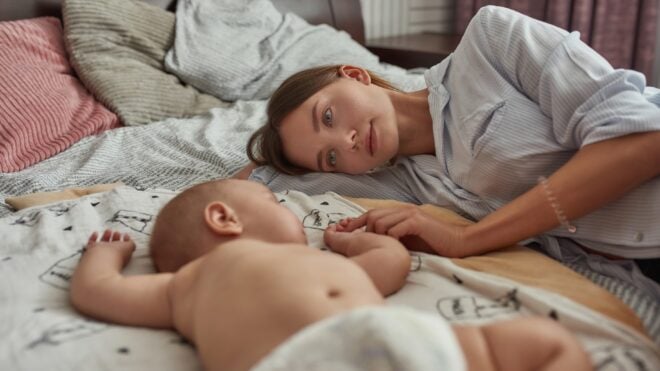When I was a kid, I loved to write—books, poems, stories. And I loved to read, anything from Dr. Seuss to Erma Bombeck. As with many of my friends who grew up writing and reading. and who continue to do so in adulthood, Judy Blume was a great inspiration for me from a very young age.
Judy Blume went head-on into so many potentially difficult topics—bullying ("Blubber"), divorce ("It's Not the End of the World"), racism ("Iggy's House"), periods ("Are You There, God? It's Me, Margaret") and even masturbation ("Then Again, Maybe I Won't").
The books had messages, but I never felt like I was learning. They were engaging. The characters felt very real and their situations were easy to empathize with. I looked forward to each new book and devoured them all.
RELATED: One Non-Mom Thing All Moms Should Do
Blume was one of the many authors I loved as a kid: there was Beverly Cleary, E. B. White, Roald Dahl. And before that Shel Silverstein, Russell Hoban, Stan and Jan Berenstein.
And there was Peggy Parish.
Parish wrote a series of books about a quirky housekeeper called Amelia Bedelia. Amelia's greatest idiosyncrasy was that she—literally—took everything literally.
If instructed to "draw the curtains," she would take pen to paper and sketch the drapes. If asked to "dust the furniture," she would sprinkle dust on everything. When baking a cake that required dates, she cut out the little day squares of a calendar and put them in the batter. And so on.
I'm looking forward to discovering, through my children, new authors and characters.
I adored her. And I think of her often now when my children, who are at a stage of language development where everything is very literal indeed, react to everyday things I say ("Mommy, you can't 'jump in the shower,' it's not safe," "Mommy, I can't pick up the whole room!" or "Mommy, if you're sick of it, you have to go to the hospital.")
Parish died in 1988. In 2009 her nephew, Herman, took over the character of Amelia. A year or so back, Herman Parish did a reading at a lovely bookshop in Amsterdam that specializes in English-language books. He also hosts various workshops and events. I signed my then 2-year-old daughter and me up, knowing she was a bit young but unable to resist introducing her to one of my favorite characters.
Except Herman Parish didn't take over the character, but the brand. Amelia was no longer a literal housekeeper, but a young girl. And the story didn't focus on clever word play, but on little Amelia becoming, for the first time, a member of her local library.
It's a delicate balance, education and entertainment.
I was baffled. The book was okay but entirely generic. Gone was the clever word play, the charm. The book had a purpose—to teach children how to get a library card, check out a book, behave in the library—and the instructiveness, for me anyway, definitely overshadowed any real joy a child would get from reading it.
My daughter wasn't having it at all. She began gathering our coats, hats and gloves, and pointing to the door.
Being sentimental and a collector of keepsakes I want my children to cherish later, I stayed to meet the author and bought the book, who signed it and wrote a note to my daughter—"Never drop a book!"—and we left.
It's a delicate balance, education and entertainment. Several years ago, I was lucky enough to attend, for my job, the Bologna Children's Book Fair. It was fantastic: children's books from around the world, amazing illustrations and creativity. I picked up what is now one of my son's favorites: a book called "What Colour Are Your Underpants?" In it, several jungle animals show us their underwear. The book teaches colors and animals, and it rhymes. It's educational, but also amusing, because when you are 4 years old, underpants are hysterical.
RELATED: Survival Mode: Summer Vacation With Small Kids
I'm looking forward to discovering, through my children, new authors and characters. But just to be safe, I'm lining our shelves with Judy and Peggy and the other writer heroes from my childhood and hoping they enjoy them as much as I do.




